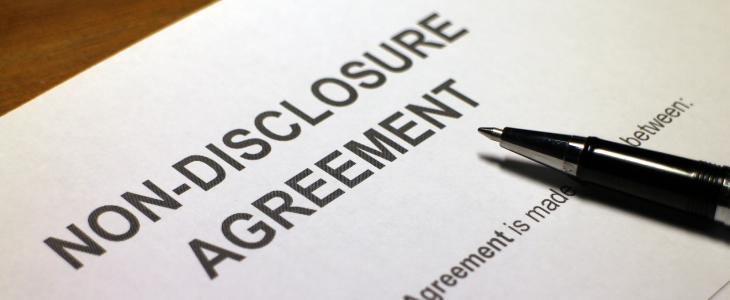
Last Updated: 02/20/2025
Non-disclosure agreements or NDAs have become a ubiquitous part of many business dealings. You can see them in employment agreements, licensing transactions and mergers and acquisitions. They are designed to protect confidential, non-public, secret and other vital information. Some are one way, with a company sharing such information to another party, or two-way, where both parties share information with each other. While these are usually signed at the start of a business relationship, they can sometimes be entered into later on when it becomes clear that there will be an exchange of confidential information. It is vital to know how to use them, which is why you should retain an experienced business attorney here in New Jersey to help guide you in crafting one for use by your business.
How Can I Use Non-disclosure Agreements for My Business?
Depending on your type of business, you may have certain trade secrets, intellectual property or other confidential processes that give your company a competitive advantage. For example, Coca-Cola has a special formula while Kentucky Fried Chicken uses a unique blend of 11 herbs and spices as a marketing tool. Companies like these will have key employees sign NDAs in order to protect these trade secrets. If your business involves this type of information, then an NDA will be useful to shield this confidential information from disclosure by employees, suppliers, vendors and any other parties that may receive this information.
Your business may have other information that it wishes to protect, such as client lists, sales plans and financial information. If a competitor were to get ahold of this information, it could damage your business. For example, real estate brokerages will protect the list of buyers and home sellers in the neighborhood to prevent a rival broker from poaching potential customers.
There are also NDAs that have to be signed because of a duty to keep certain information confidential. HIPAA (Health Insurance Portability and Accountability Act) requires physicians, dentists and other healthcare professionals to prevent the unauthorized disclosure of private medical and health information of their patients. Similarly, financial professionals are required to shield the non-public personal information of customers and clients. As a result, it is critical for anyone working in these fields to make sure that such information is kept confidential since failure to get parties to sign NDAs could result in severe penalties.
Sometimes, confidentiality is a two-way street. This happens when you have a merger of two businesses, and both parties have to share critical information including intellectual property and trade secrets. This may also occur in licensing agreements, where one side gives the other source codes for information technology, and the other provides processes for manufacture and distribution of the ultimate product. In these cases, both sides are equally bound to protect each other’s information.
How Are NDAs Enforced?
The goal of an NDA is to keep the vital information secret. This is why monetary damages are often useless to a company seeking to keep information confidential. As a result, the most common form of enforcement is injunctive relief. This prevents a party from releasing the information, empowering a court to take steps to keep the information from being released. If there has been a release, the court can order specific performance requiring the breaching party to take steps to fix the problem.
In some cases, a party has received confidential information and legally shared it with a third party, only to find out that the third party has breached confidentiality. In these cases, the original party will be empowered to take steps to enforce the NDA against the third party. Alternatively, you can have a situation where the party bound by the NDA is required to take steps against such a third party.
Are NDAs Always Enforceable?
There are some situations where NDAs are unenforceable. In New Jersey, it is illegal for an employer to use NDAs in employment contracts and settlement agreements related to discrimination, harassment and retaliation claims. Such “hush money” payments are seen as against public policy, but doesn’t affect the protection of trade secrets and other confidential information. This rule applies to any new employment related NDAs and existing ones that were renewed or modified on or after March 18, 2019.
Contact Our Business Non-Disclosure Agreements Attorney in New Jersey
Non-disclosure agreements are a powerful tool for your business, helping to shield your intellectual property, trade secrets and other confidential information from unauthorized disclosure by employees, business partners, vendors and suppliers. The experienced business attorneys at The Cassidy Law Firm LLC can assist you with all of your needs, helping to craft NDAs that will be enforceable to protect your vital information.